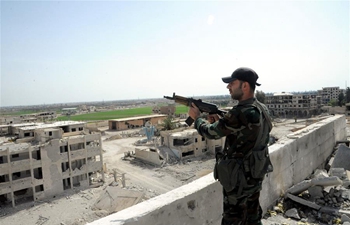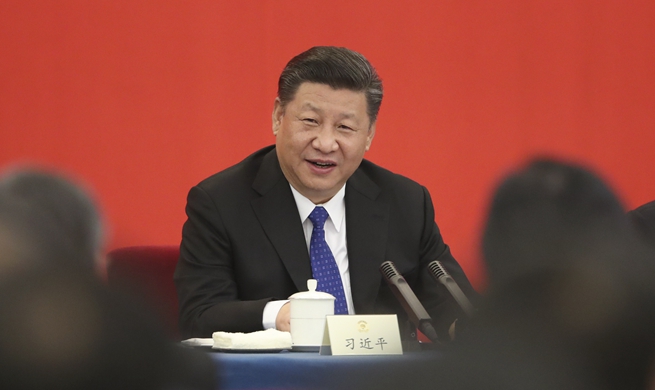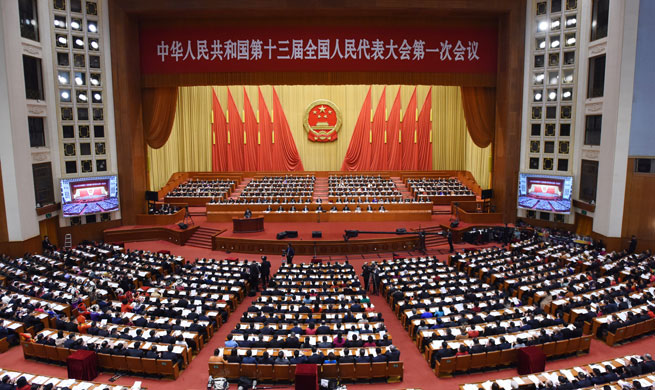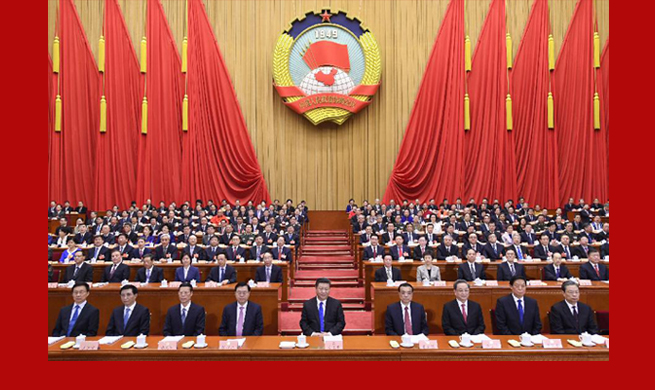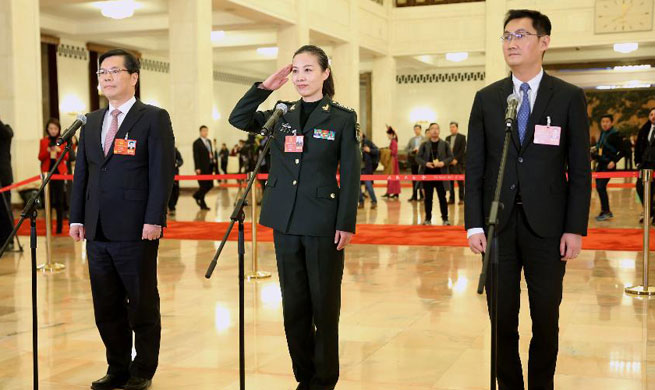MANILA, March 5 (Xinhua) -- A sub-leader of the Daesh-inspired Maute Group has taken over as the emir or leader of the Islamic State of Iraq and Syria (ISIS) in Southeast Asia, a Philippine military spokesman disclosed Monday.
The new ISIS-Southeast Asia emir, identified as Abu Dar, succeeded Isnilon Hapilon, a senior leader of the Abu Sayyaf, another notorious terror group besides Maute in southern Philippines, who was slain by government forces at the height of the five-month siege of Marawi city last year.
"The one who is standing as their emir or leader now, the one who replaced him (Hapilon) is Abu Dar," said Maj. Ronald Suscano, spokesman of the Army's 1st Infantry Division based in Zamboanga del Sur.
Hapilon and Maute leader Omar Maute were killed after elite government soldiers assaulted their lair last October inside the main battle area in Marawi city. The assault also led to the rescue of 20 hostages, including a two-month old baby girl.
Suscano described Dar as a "full-blooded Maranao", a term for a southern tribe. He said they have reports that Dar is frequenting Pagayawan town in Lanao del Sur where the terrorist leader grew up, studied and married.
Suscano said Dar was among those who laid a siege of Marawi city on May 23 last year, but was able to slip out, along with other Maute members and leaders. The fighting led to the death of 974 terrorists, soldiers and policemen and 47 civilians.
"He escaped out of Marawi with a large amount of money. His group carried the money so they have a lot of funds," said Suscano.
A security official, speaking on condition of anonymity, said military estimates the amount the group of Dar was able to carry out of Marawi at about 500 million pesos (10 million U.S. dollars), adding Dar and his men slipped out of Marawi during the early stage of the siege.
Dar, like Hapilon, is reported to have connections with foreign terrorists. "There are foreign terrorists left (in Mindanao). He is with them now. We just can not say how many or disclose the identities of these foreign terrorists left," said Suscano.
Last November, an intelligence officer in the Philippine army said there are about eight foreign terrorists operating in Mindanao, providing assistance to local terrorists.








